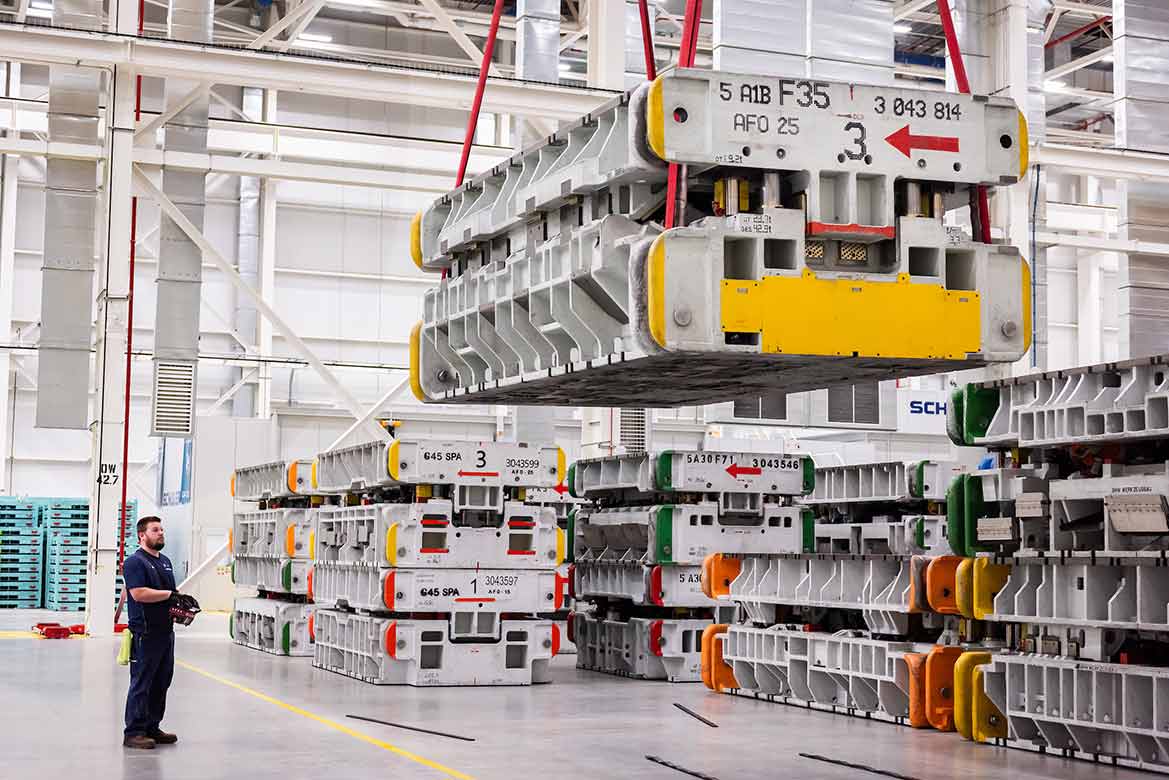21.06.2024
Investment of $200 million, with 200 new jobs at press shop +++ Plant Spartanburg celebrates 30th anniversary +++ Board of Management Member Nedeljković: “Fully-electric vehicles to be built in US from 2026”
Spartanburg, USA. Celebrating 30 years of production, BMW Group Plant Spartanburg in South Carolina, USA, has opened its state-of-the-art press shop, as it prepares for the launch of the new BMW X3. The X3’s outer skin, including its exterior body sides, doors, side panels and tailgate, will all be produced by the plant’s own press shop.
Speaking in Spartanburg, Milan Nedeljković, member of the Board of Management of BMW AG responsible for Production, underlined the plant’s importance for the company and highlighted future opportunities: “After 30 years of successful production, we are further expanding our commitment. In late 2026, production of fully-electric Sports Activity Vehicles will get underway here in Spartanburg – a further step towards strengthening our global resilience.”
Between now and 2030, at least six fully-electric models will ramp up at the US plant. The high-voltage batteries for future BEVs from Spartanburg will come from nearby Woodruff, where the BMW Group is currently setting up an assembly for sixth-generation batteries. The innovative new press shop also contributes to strengthening the local manufacturing footprint in the US.
“The advanced production methods used in our press shop will ensure the highest quality and efficiency of body components for our customers,” said Robert Engelhorn, president and CEO of BMW Manufacturing. “Having this press shop on-site fits our ‘local for local’ strategy, whereby we produce major parts at the location where we need them.”
The BMW Group has invested more than $200 million to construct the roughly 20,000-square-metre press shop. It took just under two years from site work preparation to stamping the first parts on the press line. The investment has also led to the creation of more than 200 new jobs in various fields, including tool and die technicians, as well as in electrical and mechanical maintenance for automated machinery. Dozens of associates from Plant Spartanburg trained at the BMW Group press shops in Swindon in the UK and Leipzig in Germany.
During the ceremony, the fourth-generation BMW X3 was also presented to the audience. The BMW X3 is one of the company’s best-selling vehicles in the United States and worldwide. Plant Spartanburg associates have built more than 1.7 million BMW X3s since the model was introduced back in 2010. The new BMW X3 will be released onto the market in autumn 2024.
High-tech press shop produces up to 10,000 parts per day
The press shop marks the beginning of the automotive production process. Large steel or aluminium coils are unloaded from trucks using a 55-ton overhead crane. These steel rolls are first fed into the coil line, where the sheet is cut into individual “blanks” (rectangular cut-offs or special shapes) at up to 70 strokes per minute. These blanks are then ready to be fed into the five-phase press line, where they are formed into the final body components.
The line is equipped with cutting-edge servo technology, which enables the BMW Group to produce large quantities very efficiently. An overhead crane moves the correct press tool (die) into each station. The blank is fed into the first press station and transferred from one station to the next by a robot-like automation technology, referred to as the “crossbar feeder” for additional forming and trimming operations. The line is capable of running up to 18 strokes per minute, which means more than 10,000 components can be produced each day, depending on the size.
After the parts are stamped, they go to quality control for inspection, using special lighting that mimics natural daylight. The pressed parts are then stacked into containers, ready for delivery to the body shop for further processing.
Like other BMW Group plants, Plant Spartanburg has also established a closed-loop material cycle for scrap metal from the press shop. Underneath both the press and coil lines are areas that collect the scrap metal gathered after the parts are stamped. As much as 60 tons of scrap are accumulated each day; a roughly 300-metre-long conveyor carries the scrap, which is then loaded onto trailers. All this material is taken off-site to be recycled and reused to manufacture new steel and aluminium coils.
Almost seven million BMWs in 30 years at Plant Spartanburg
This year, Plant Spartanburg celebrates 30 years of production in South Carolina, with more than 6.7 million BMWs assembled during the past three decades. The plant employs more than 11,000 people in production of various BMW X models and is one of the BMW Group’s largest plants worldwide, with over 1,500 vehicles manufactured daily. The 750,000-square-metre campus includes three body shops with more than 2,600 robots, two paint shops and two assembly halls. The plant generates about 20 percent of its own power from recycled methane gas obtained from a local landfill and uses hydrogen fuel cell technology to power about 800 logistics vehicles.
The BMW Group announced in 2022 that it would invest $1.7 billion in its US operations, including $1 billion to prepare Plant Spartanburg to assemble fully-electric vehicles and $700 million to build a new high-voltage battery assembly plant in Woodruff. When completed in 2026, Plant Woodruff in South Carolina will assemble the sixth-generation batteries to supply fully-electric vehicles at BMW Group Plant Spartanburg.



